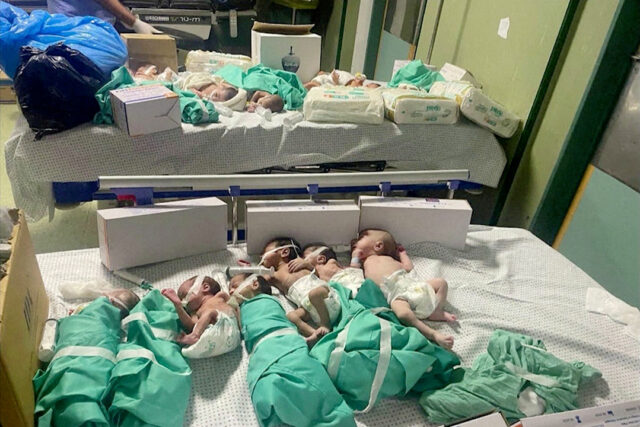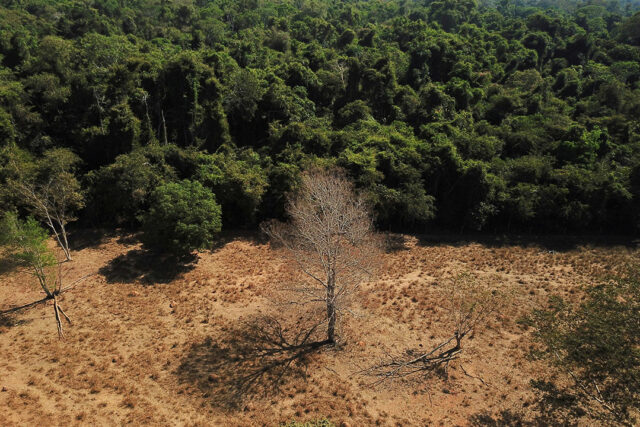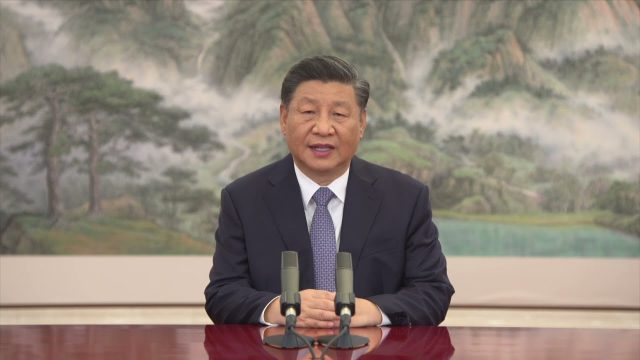SAO PAULO — Restoring global forests could sequester 22 times as much carbon as the world emits in a year, according to a scientific study published on Monday, making the case that trees are a key tool in confronting the climate crisis along with cutting fossil fuels.
The study considers restoring forests where they would naturally exist if not for humans, either by allowing degraded woodlands to regrow or by reforesting denuded areas, but excludes areas vital to agriculture or already turned into cities.
Reaching the world’s full potential for restoration would draw out an estimated 226 gigatons of excess carbon from the atmosphere — or roughly one-third the amount added to the atmosphere since the industrial revolution, the research finds.
“There cannot be a choice between nature and decarbonizing. We absolutely must take steps to achieving both simultaneously,” said ecologist Thomas Crowther of Switzerland’s Federal Institute of Technology Zurich.
The paper, published in the journal Nature by Mr. Crowther and more than 200 other researchers, offers a major update to a 2019 paper that sparked fierce debate in the scientific community.
The new findings show that, while forests can help to combat climate change, it is counterproductive to use them to offset future greenhouse gas emissions, Mr. Crowther said. Any additional emissions will exacerbate climate change and extreme weather, damaging forests and hurting their ability to absorb carbon. That would negate the benefits of an offset, he said.
The idea of earning an offset through simply planting trees “is now categorically against what the science says,” Mr. Crowther said.
Mr. Crowther said he plans to attend the upcoming United Nations COP28 climate summit in Dubai to deliver that message to policymakers. “This paper has to be the one to kill greenwashing,” he told Reuters.
TREE CONTROVERSY
The research follows on a landmark 2019 study also co-authored by Mr. Crowther, indicating that 205 gigatons could be sequestered by forest restoration. Salesforce CEO Marc Benioff read the study and was inspired to work with the World Economic Forum to develop its initiative to plant a trillion trees.
But the paper and the trillion trees effort — which was quickly endorsed by then-US President Donald Trump — set off a controversy among scientists and environmentalists.
Many scientists — as well as Swedish activist Greta Thunberg — said trees were being presented as an overly simplistic cureall for the climate crisis that could distract from efforts to reduce the use of fossil fuels, the main culprit for climate change.
Mr. Crowther said the response drastically oversimplified the paper’s message.
More than 40 scientists wrote in the journal Science that the 2019 study may have inflated the carbon sequestration potential of forest restoration by 4-5 times by considering tree planting in non-forest ecosystems among other oversights.
Joseph Veldman, an ecologist at Texas A&M University and lead author of that criticism, said he thinks the new paper still exaggerates how much carbon could be sequestered, potentially by half.
He said the 226 gigaton figure includes carbon sequestered in places that are “inappropriate” for planting trees, like at high altitudes, and overly rely on forest gains in savannas, among other concerns.
“This is like the absolute, absolute upper bound of what could possibly ever be fathomable,” Mr. Veldman said. “You’re never going to get there. It’s unwise and it’s not feasible.”
Mr. Crowther said that while the current and previous study show where trees could be planted, it did not mean that they necessarily should be planted there.
The study’s authors specify that restoration must be done a certain way to be effective.
They argue that forests must be diverse, rather than mass plantings of a single species, and restoration must serve local community needs.
Cristina Banks-Leite, a tropical ecologist, teaches the 2019 Crowther paper and a paper that criticized it in the first week of her master’s course at Imperial College London to illustrate the debate around forests in the scientific community.
Doing such complex measurements for the whole world is always going to have some flaws, but also improves with technology advances, she said.
The paper also finds that protecting existing forests is more beneficial than trying to regrow them. Of the total carbon sequestration potential, only 39% would come from reforesting denuded areas. Most of the carbon gains, an estimated 61%, would come simply from protecting forests that are still standing and allowing degraded woodlands to recover.
“The take-home message – that the forest that we have should be protected – is absolutely foundational and correct,” said ecologist Nicola Stevens at University of Oxford, who had co-authored the criticism of Crowther’s earlier paper. — Reuters











